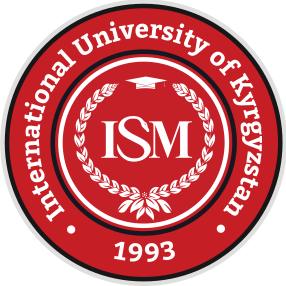- Department of Humanities and Natural Sciences
- Department of Fundamental Disciplines
- Department of Micro and Macro Anatomy
- Department of Public Health
- Department of Pathology
- Department of Pediatrics, Obstetrics and Gynecology
- Department of Special Clinical Disciplines
- Department of Special Surgical Disciplines
- Department of Therapy
- Department of Surgical Diseases
- Department of Infectious Diseases
Учебный план:
Subsequence
Calendar schedule 2023-2024 year.
- 1 course, 1 semester, II half year
- 1 course, 2 semester, II half year
- 2 course, 3 semester, II half year
- 2 course, 4 semester, II half year
- 4 course, 7 semester, II half year
Module schedule 2023-2024 year.
- 1 course, 1 semester, II half year
- 1 course, 2 semester, II half year
- 2 course, 4 semester, II half year
- 2 course, 3 semester, II half year
- 4 course, 7 semester, II half year
Subjects:
The discipline of “Russian Language” is focused on teaching foreign citizens who have not previously studied the Russian language. The program aims to teach language and speech skills and abilities in the educational and professional field of future doctors. Mastering the Russian Language discipline program is necessary for completing educational practice in medical institutions and clinics when communicating with doctors, patients, and medical staff.
Total labor intensity: 188 credits (288 hours)
Auditorium classes: 144 hours
Independent work: 144 hours
Semester: 1-2, 3-4
Final control: credit
The discipline “Kyrgyz language and literature” is focused on teaching foreign citizens who have not previously studied the Kyrgyz language and literature. The program aims to teach language and speech skills and abilities in the educational and professional field of future doctors. Mastering the discipline “Kyrgyz language and literature” program is necessary for completing educational practice in medical institutions and clinics, when communicating with doctors, patients, and medical personnel.
Total labor intensity: 4 credits (144 hours)
Auditorium classes: 72 hours
Independent work: 72 hours
Semester: 1-2
Final control: credit
Educational Guidelines for Kyrgyz language and literature
The discipline “Latin language” is studied for a holistic understanding of phonetics, grammar of the Latin language, for mastering anatomical (Latin names of body parts, organisms), clinical (pathologies, deviations, names of diseases of Greek origin), pharmaceutical terms (names of medicinal herbs, remedies, drugs etc.; correct writing of the prescription line), which contribute to solving professional problems.
Total labor intensity: 2 credits (60 hours)
Auditorium classes: 36 hours
Independent work: 24 hours
Semester: 1
Final control: credit
The discipline “History and Culture of Kyrgyzstan” is a discipline that studies the development processes of our Fatherland, the history of ethnic groups living on the territory of Kyrgyzstan, primarily the Kyrgyz, the establishment and formation of state public institutions, and the activities of historical figures.
Total labor intensity: 4 credits (120 hours)
Auditorium classes: 72 hours
Independent work: 48
Semester: 1-2
Final control: credit
Educational guidelines for the History and culture of Kyrgyzstan
The discipline “Medical Biophysics” allows the future doctor to acquire the skills of in-depth analysis of socially significant problems and processes, and to use the methods of natural sciences and mathematics in various types of professional and social activities. The student learns to apply physical laws in the diagnosis and treatment of diseases, and modeling processes, understand the principles of the design and operation of instruments and devices used in modern medicine, and take into account safety precautions when working with them (medical electronics, dosimetry of ionizing radiation, etc.)
Total labor intensity: 2 credits (60 hours)
Auditorium classes: 36 hours
Independent work: 24 hours
Semester: 1
Final control: credit
The discipline of philosophy” examines a wide range of the most relevant topics in the history and theory of philosophical teachings, critical understanding of the basic philosophical problems of culture, science, religion and existing approaches to their solutions. It reflects the current state of philosophical thought in the world and the country, the main changes in its teaching, and considers the goals and objectives of comprehending the philosophical culture of thinking by future doctors in the context of both general humanitarian and professional training of doctors.
Total labor intensity: 2 credits (60 hours)
Auditorium classes: 36 hours
Independent work: 24 hours Semester: 1
Final control: credit
The discipline “Higher Mathematics and Computer Science” will help specialists in creating software designed to solve frequently encountered problems in medicine, technology, mathematics, economics, and other branches of human activity (when collecting research results with subsequent analysis of big data, when identifying patterns inherent in living phenomena nature).
Total labor intensity: 2 credits (60 hours)
Auditorium classes: 36 hours
Independent work: 24 hours
Semester: 1
Final control: credit
Educational guidelines for Higher mathematics and computer science
The discipline “Foreign Language” is studied to increase the initial level of foreign language proficiency achieved at the previous stage of education, and to provide students with the necessary and sufficient level of foreign language communicative competence to solve social and communicative problems in various areas of everyday, cultural, professional and scientific research activities and contributes to the formation of a comprehensively developed personality of a medical specialist.
Total labor intensity: 2 credits (60 hours)
Auditorium classes: 36 hours
Independent work: 24 hours
Semester: 1
Final control: credit
